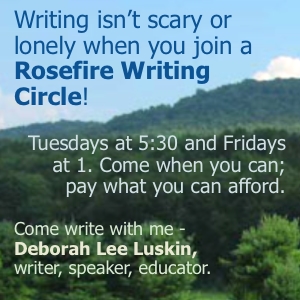When my wife and I relocated to this area from New York City 40 years ago, we found that we did not always “fit in.” People whose values we shared and with whom we had hoped to be friends were often cliquish and unwelcoming. Contrary to stereotypes, it was more often native-born Vermonters who seemed not to judge us by where we came from or how we talked, but would size you up and accept you if you had a good heart and a good character.
The person who did the most to get us connected to the community was a man in his 70s named Huebener Wellman. Huebener was born in Vermont, the child of native-born Vermonters, but he said he was not a native Vermonter because he was conceived in Massachusetts. His parents were Unitarians. Huebener called himself a “negative Pagan.” He explained that he did not buy any religious ideology, including agnosticism or atheism, and since you have to be something, he was calling himself a Pagan. But he was a “negative” Pagan because he did not believe in any Pagan pantheon or any particular Pagan doctrines. In all things Huebener was unique.
Huebener faithfully came every week to a regular vigil at G.S. Precision, where a small group of pacifists were protesting the manufacturing of components for first-strike nuclear missiles. But he would stand a few feet from the rest of us explaining that he does not join in groups so he was not part of the vigil: He was just there as “an observer.”
Huebener Wellman was small, with long, silky white hair flowing down past his shoulders. Wearing a pointy, red cap, he looked like an elf. At times Huebener warned people around him not to act in any way which might call attention because he did not want to stand out, and you could tell that he was not joking.
Huebener would invite me to walk around town with him. He seemed to know half the people we ran into. One day, he brought me to Frost Place, where Wally and Emily White, with the help of like-minded people, had turned a free-standing garage into a chapel and makeshift homeless shelter. There was a hand-painted sign on a tree that read: “Jesus Can Change Your Life.” A sign on the mission displayed a graphic of a compass with the words: “Going in Circles? Jesus Can Show You The Way.” When I saw that, I made some argumentative remark about fundamentalist Christianity. Huebener asked me not to be combative, because, he said, “These folks are good friends of mine.”
I later learned that this “born-again Pagan” attended Faith Ministries’ Thursday evening intercessory prayer meetings, which were gatherings of neighbors sharing their troubles, and offering one another passionate, heartfelt support.
Emily is deceased, as is Wally. During the time I knew Emily, she had been a very comforting friend. My wife and I had experienced a terrible tragedy: the death of our first baby, Ember, after our midwife abandoned us. How could we go on living? How could we not want to die? There was almost no one in the “alternative” community whom we could talk to, and we realized that quite a few people who have excellent ideas in the abstract can also lack empathy when actual human beings need their love. Being able to talk with Emily and to put my agony into prayer relieved the burden on my heart.
Emily was an incredible listener. I recall a conversation in which she interrupted me for a clarification because I mentioned a detail which seemed different from what I had said six months earlier. Wow… I knew she was listening!
Emily often quoted a Biblical phrase applicable to a situation which we were discussing. Unlike people who throw memorized passages at you, the Scriptures which Emily mentioned were always relevant. Emily’s counseling gave clarity and inspired confidence just when I needed it. My encounter with Wally and Emily showed me a different Christ than the rigid icon of fear-based dogma that ranting preachers use to intimidate. When Emily talked about Jesus, I could understand and feel a completely different kind of presence.
It was a native born Pagan who introduced me to these “religious fanatics.” Another native born Vermonter, Marion Hooper, whose father, Howard C. Rice, started the Brattleboro Reformer and whose family owned the paper for a half century, also accepted us, gave me employment and an opportunity to participate in a literary project, and introduced me to a great many wonderful people. Marion was the ultimate democratic person: She came from a notable family, but was down to earth and treated everyone with impartial respect (or impartial disrespect if they ran afoul of her) regardless of their social standing, origin, or ethnicity.
When I first came to Vermont, I was concerned that if I opened my mouth and sounded like a New Yorker, I would be run out on a rail, or at least get the deep chill. It is difficult to describe exactly what “Vermont values” are, but I think they have to do with putting aside superficial differences, and appreciating authenticity and honesty.
– 30 –
Steven K-Brooks is retired from active real estate brokerage in Brattleboro. He writes on his blog88.org.




